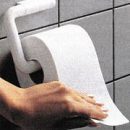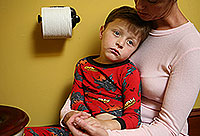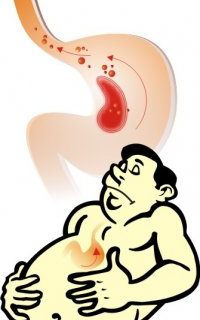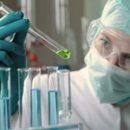Colitis - inflammation of the gauge mucous membrane, which often occurs in chronic inflammatory bowel diseases, as well as infections caused by bacteria, viruses or protozoa.
Content
Colitis can be complicated by inflammation of the stomach or thin intestines. Often the disease is confused with irritable intestinal syndrome due to similar symptoms, however, the irritable bowel syndrome is not associated with the colon.
The main causes of the development of the disease:
- The presence of infection in the organs of the gastrointestinal tract
- infection by pathogenic microbes (salmonells, staphylococci and t.D.) as a result of consumption of low-quality food
- The presence of worms (in some cases)
- monotonous, defective nutrition
- Alcohol abuse
- Violation of the rules of sanitation
- Long reception of a number of antibiotics
- The chronic form of the disease is often evolving as a result of poor-quality treatment of acute
Colitis can be caused by previously transferred intestinal infections, improper power or inadequate drug therapy, but, as a rule, the causes of inflammation are several factors.
Severe two forms of colitis: acute and chronic.
In acute colitis, the stomachs and small intestines are often inflamed, which leads to a violation of the normal functioning of not only colon, but also other organs of the gastrointestinal tract.
In acute colitis, the stomachs and small intestines are often inflamed, which leads to a violation of the normal functioning of not only colon, but also other organs of the gastrointestinal tract.
The causative agents of the acute form of the disease are: staphylococci, streptococci, salmonella, dysenteric microorganisms and t.D.
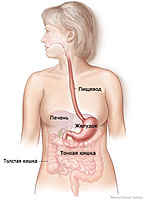 The main symptoms of acute colitis:
The main symptoms of acute colitis:
- abdominal pain
- The presence of blood and mucus to feces
- Owl of belly
- diarrhea
Symptoms can be saved within a few weeks. Without appropriate treatment, an acute form can go to chronic.
Chronic colitis – A disease that has many manifestations that occurs with periodic exacerbations. The presence of infection in digestion organs can lead to chronic form of the disease.
The exacerbations begin in a consequence of consumption of products that provide an irritating effect on a thick intestine, an allergic reaction, long-term intake of antibiotics or overall overwork.
Symptoms of chronic colitis:
- Stomach pain wearing grapple-shaped character
- diarrhea alternating with constipation
- Massage isolation (possibly with blood impurity)
- loss of appetite
- weakness
To diagnose colitis, the following research methods are used:
- Microscopic examination of Cala
- Endoscopic study
- Colonoscopy
- RectorOnososcopy
Microscopic part of the feces makes it possible to identify the presence of eggs of intestinal parasites, pathogenic bacteria, simplest, as well as explore bacterial cultures. If the causative agent is not found, it is necessary to inspect the colon mucosa and, if necessary, take the material for biopsy.
Endoscopic examination reveals how much the affected section of the mucous membrane is eaten, whether subhumanized hemorrhages are.
For diagnostics of acute colitis used RectorOnoscopy. With it, it is determined by hyperemia and swelling of the mucous membrane, the presence of mucus on the walls, and in more severe cases of presence of pus, erosion or hemorrhage.
Treatment colitis – Therapy that should be conducted under medical control.
Treatment colitis (special acute) is carried out in the hospital, as it is important to exclude the infectious nature of the disease. In case of detection of infection, antibacterial or antiparasitic therapy is prescribed. Salt laxatives are prescribed with toxic colitis.
In acute colitis, a number of recommendations should be followed:
- within 1-2 days to refrain from food
- After how long the food is allowed in accordance with the recommended diet
- Conducting a course of physiotherapy
In exacerbation of chronic gastritis, antibiotics are prescribed, as well as antispasmodic and cholinolitic drugs. It should be noted that the long-term intake of antibiotics can lead to diarrhea.
Important in the treatment of colitis has a diet. It must be gentle, but contain all the necessary substances for the normal operation of the body. It is very important to prevent constipation that irritate the intestine mucosa and contribute to the release of mucus. Excessive use of laxatives with a given disease is not recommended.
The propitis prevention is the timely treatment of the acute form of the disease and the extension of the gaps between exacerbations in chronic.
For this you need:
- stick to a diet
- Conduct timely rehabilitation
- engage in physical culture

